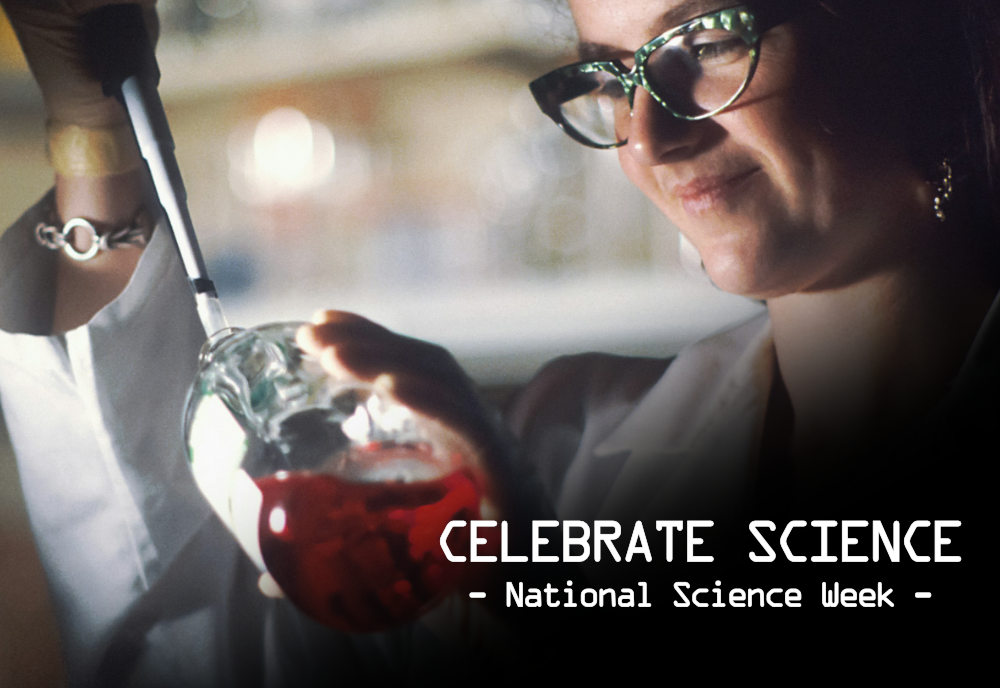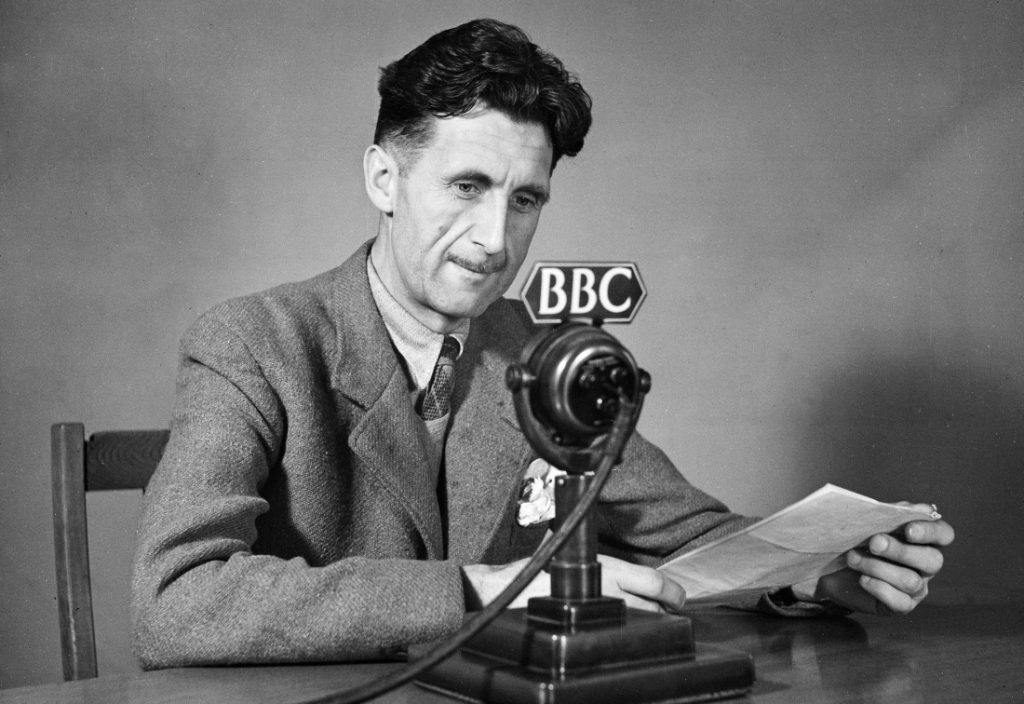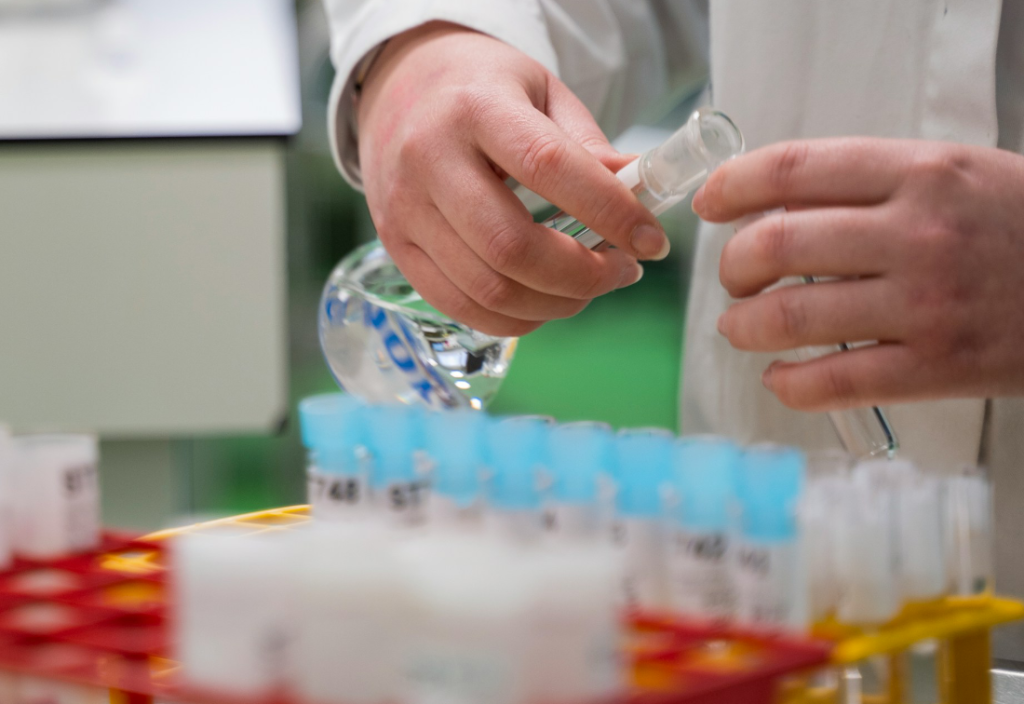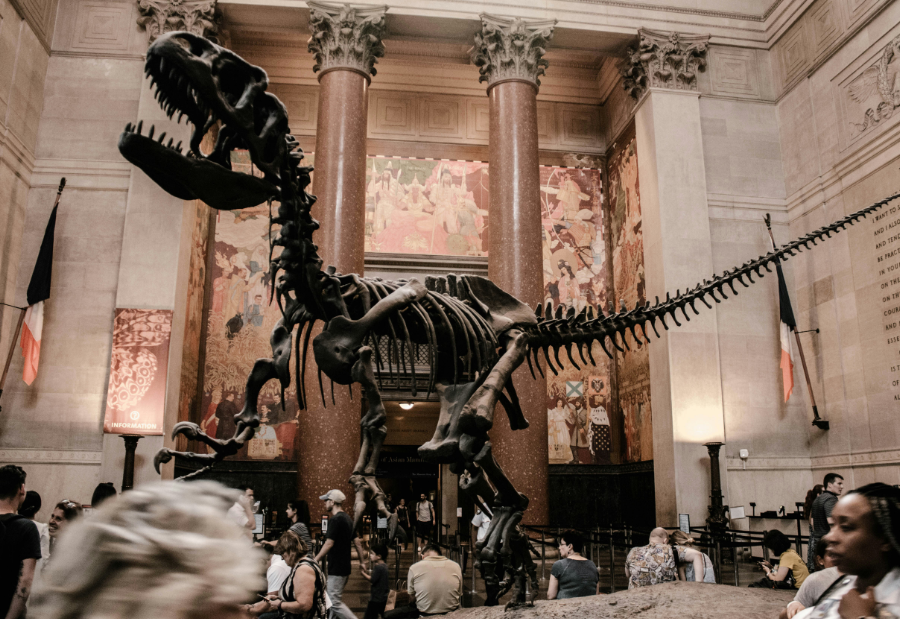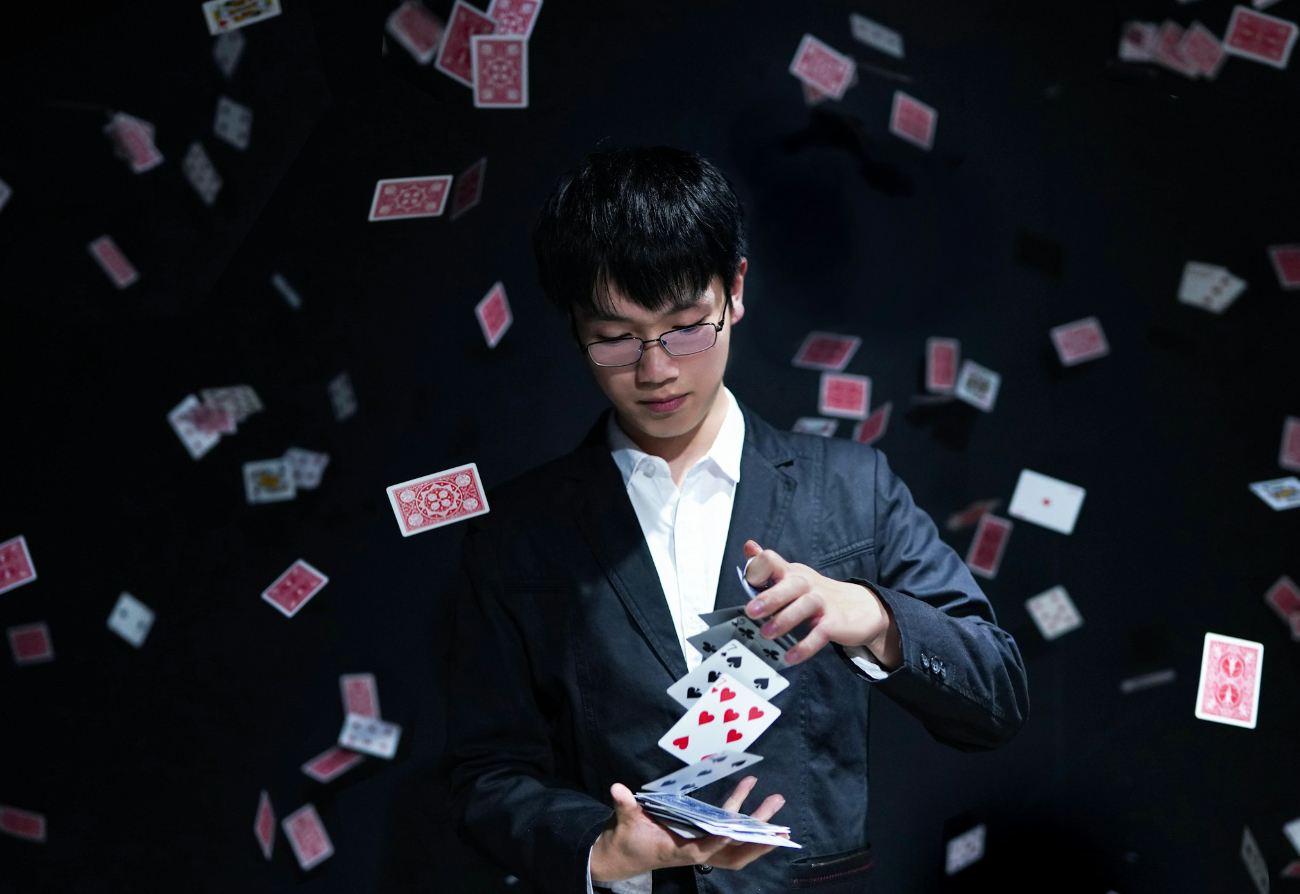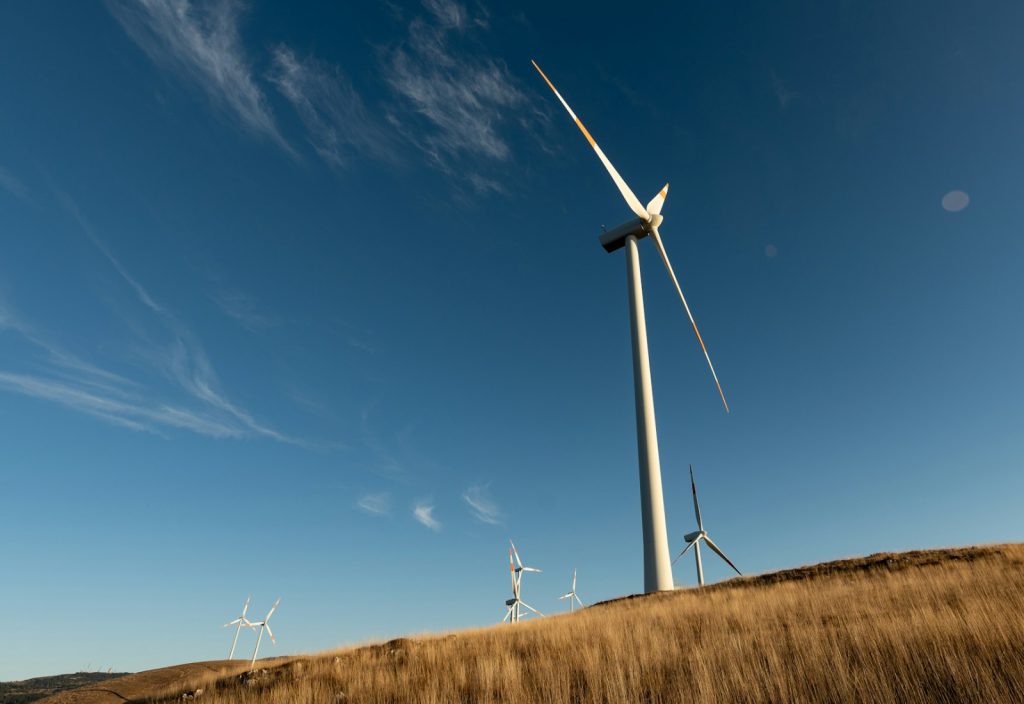This article is part of our ‘Celebrate Science’ feature series to mark National Science Week, 10-18 August 2024.
Many people are not aware of how profoundly science influences our lives, but I was made very cognisant of its value recently when I was diagnosed with breast cancer.
Having discovered a lump, I was able to have a Contrast-Enhanced Mammography, involving an intravenous injection of an iodine-based X-ray contrast ‘dye’. Then I had a new improved ultrasound, unaffected by breast density and which can find some cancers not seen on a mammogram.
Next, clinicians were able to use live ultrasound images to guide needles to take samples of my breast tissue precisely where the cancers were – a much less invasive process than biopsy procedures used in the past. The core samples taken allowed the pathologist to identify exactly what sort of cancer I had. Fortunately, it was a hormone-induced breast cancer, and scientists have developed anti-hormonal tablets which impede the growth of such cancer.
Finally, I had a PET (Positron Emission Tomography) scan which involved an injection of a radioactive tracer. Positrons emitted by the radioactive tracer collide with nearby electrons, producing gamma rays detected by a PET scanner, which build a 3D image of cancerous tissues.
I was fortunate to be able to benefit from this fusion of theoretical and applied sciences such as physics, chemistry, biochemistry, pathology, genetics, medicine, biology, epidemiology, and the technology it gave rise to.
My life depended on a complex web of knowledge and expertise developed painstakingly over many decades. Most people are very grateful for these wonderful developments in science and technology, recognising that they are important to our wellbeing and our understanding of the world.
However, some people pick and choose which areas of science they accept and which they reject. Science and scientists have become increasingly under attack if they espouse views on topics that some in the community do not want to hear at any cost. Many of these attacks are via social media and are often personal and extremely unpleasant and threatening.
The integrity of scientists is disputed, and conspiracy theories abound on how scientists are hiding or distorting the truth. At the same time, fake experts and papers are used to contradict genuine scientific findings.
It is very difficult to combat online abuse and to prevent massive vindictive trolling of science online sites. The CSIRO reports that the situation is not as bad in Australia as it is in the United States, but we still need to be vigilant and defend science at every opportunity.
The stakes could not be higher. For example, the rise of the anti-vaccination movement has resulted in more people becoming sick and, in some cases, dying as a result of contracting diseases like measles. Then there is the denial of climate change and slogans such as Drill, baby drill!
I was fortunate to be able to benefit from this fusion of theoretical and applied sciences such as physics, chemistry, biochemistry, pathology, genetics, medicine, biology, epidemiology, and the technology it gave rise to.
It is not easy to tackle science denial because the root cause is often an emotionally-based vested interest in believing pseudoscience, fake news and propaganda. Ignorance, prejudice and a reliance on hearsay can make it difficult to recognise that people propound beliefs that dissemble. Even highly educated and highly intelligent people are fooled by disinformation and misinformation largely, it seems, because they believe they can easily spot a scam.
So what can rational people do to counter anti-science sentiment? First of all, make sure you prime your knowledge of the nature of science, laws of logic, logical fallacies and arguments that debunk some of the most common attacks on the validity of scientific thinking.
There are several good websites that provide excellent insights into these issues, including The Logic of Science. A 360 report produced in collaboration with Australia’s national science agency, the CSIRO, examines current barriers to trust in science and potential solutions for maintaining and strengthening this confidence. One section gives six ways to rebuild confidence in science. The Fact Check website has a section called SciCheck, which examines claims about topical science issues. Metafact is an interesting website where you can state a purported fact and see how many experts agree with it.
But bombarding people with scientific facts is not necessarily the best way to convince them to give up a prejudice, belief in pseudoscience, or support for false news and conspiracies. It is hard enough to discard our own prejudices and misconceptions, or to admit that we have been misled or even wrong. It is harder to convince others to do the same, especially if conversations become emotional.
However, everyone likes to tell their tale, or give their opinion. So it is important to listen carefully to people who hold such views.
When you are in discussion with someone, you could ask them some key questions, such as the following:
- Is there anything I could say, or evidence I could show you, which would ever make you change your mind? If not, then you could ask them why it is so important for them to hold on to their beliefs to the point where they will not consider any alternatives.
- Where exactly have you got the information, ideas or views, which have shaped your beliefs? You could ask them for the evidence they have that these sources are reliable and have a deep knowledge on the topic. You could also ask if they have checked the credentials of any of those sources or checked to see if they have vested interests in promulgating such views.
- Do you accept that there is likely to be a range of views on any particular subject, but especially topics that may threaten people’s long-held beliefs or religious or particular consideration? It’s worth pointing out that not all these beliefs can be true, so a number of people must be holding erroneous views. You could challenge them on whether it could be them and, if so, what the consequences of holding erroneous beliefs would be.
- What do you think would be the consequences of governments and other authorities acting on your beliefs and finding they are incorrect? For example, you could compare the consequences of acting to reduce climate change in both scenarios of climate change being found to be: 1) not human-induced and the impacts less dramatic than not acting; 2) or, indeed, human-induced with catastrophic impacts. This then becomes a case of risk management – the probability of something happening weighed against the impact if it happens.
Asking these kinds of questions might then make it possible to expand on the actual topics of discussion and to expound that science provides us with the best possible evidence on which to base decisions. The science may not be complete, and it may change in the future. But compared with other sources of information, the scientific method provides the most comprehensive, tested and detailed answers.
Recently, we had the average hottest global temperature for a day on record. It is possible that such high average daily temperatures may have not been experienced for 100 thousand years. According to ABC News, the warmest 10 years on record have all happened since 2005, which scientists say is largely due to climate change caused by human activity. The United Nations has warned that there is a 98 per cent chance that one of the next five years will be the hottest on record – again! We have entered a new climate state – one that could be catastrophic for life on Earth.
However, there were no mass protests or storming of the barricades or incisive action by governments when the record was announced. With such apathy and complacency, defending and promoting science has never been more important.
Published 13 August 2024.
If you wish to republish this original article, please attribute to Rationale. Click here to find out more about republishing under Creative Commons
Photo by National Cancer Institute on Unsplash.

